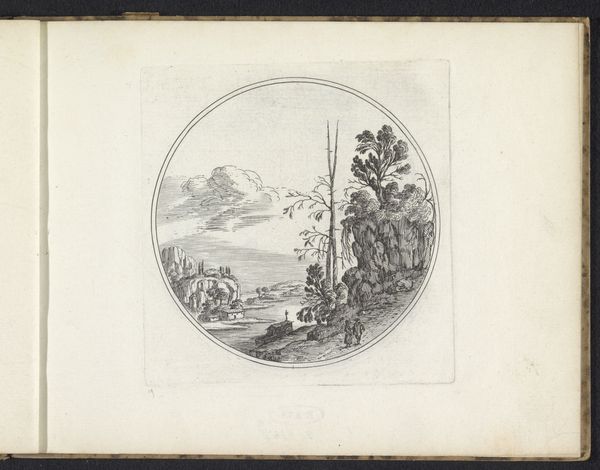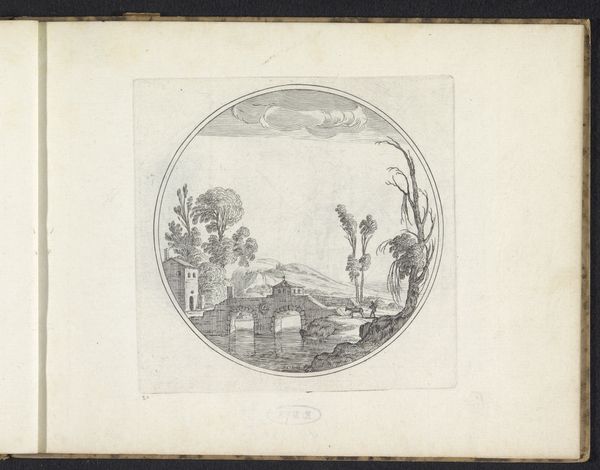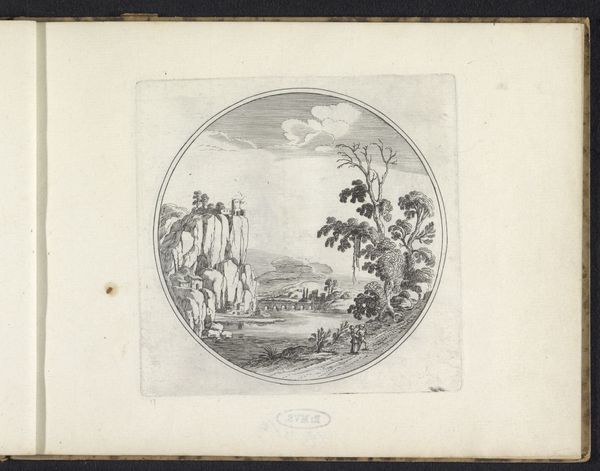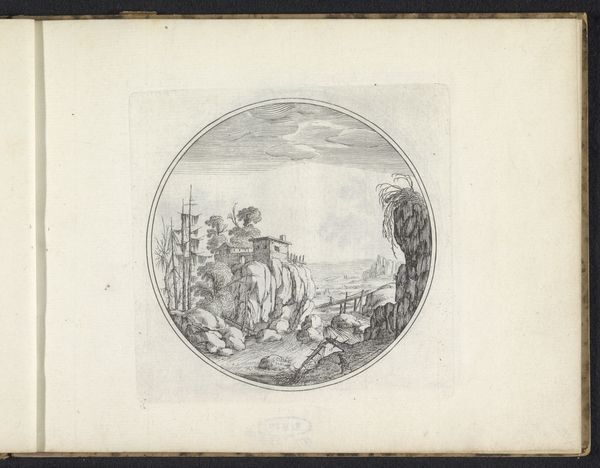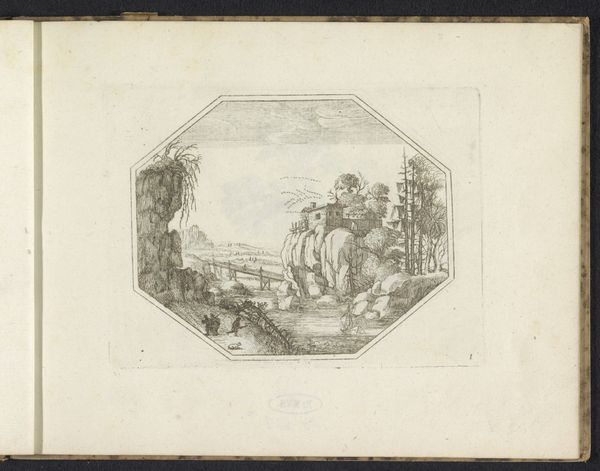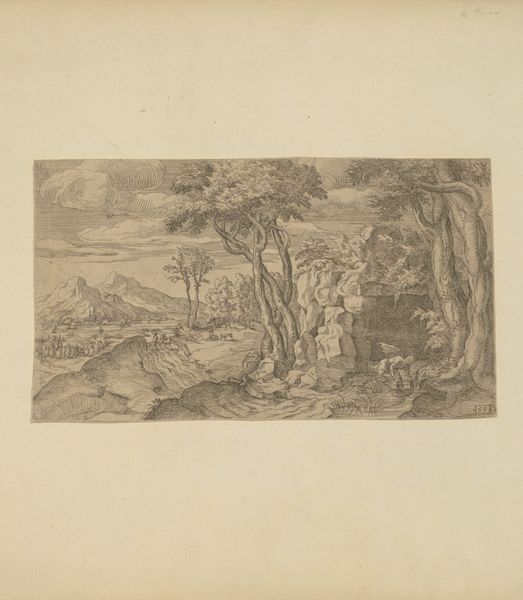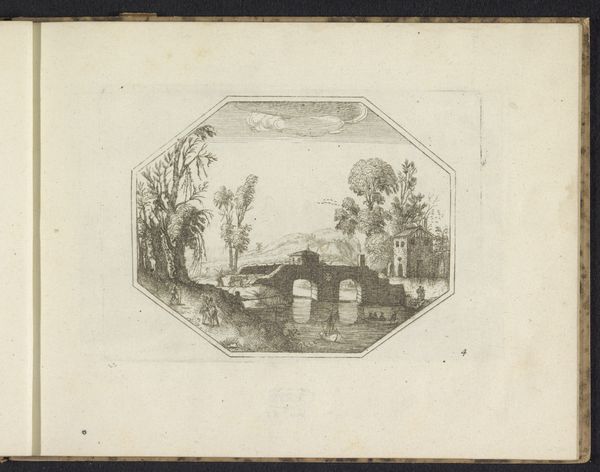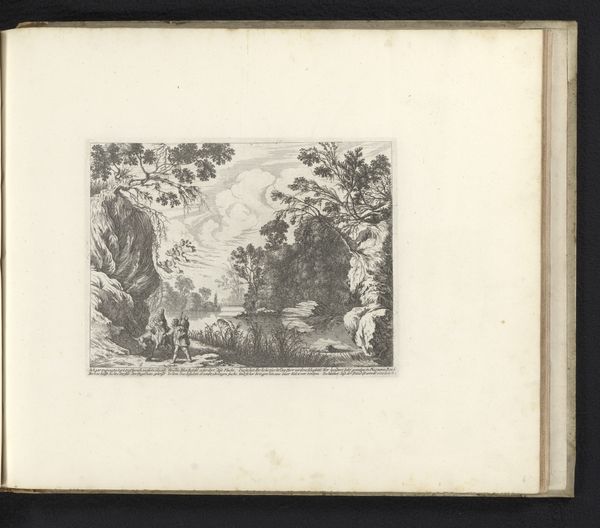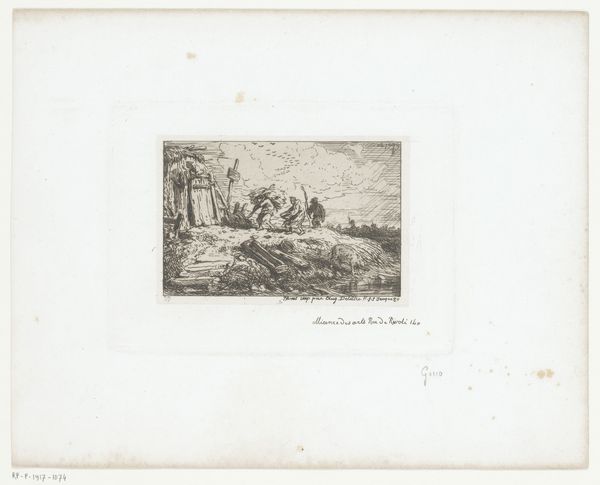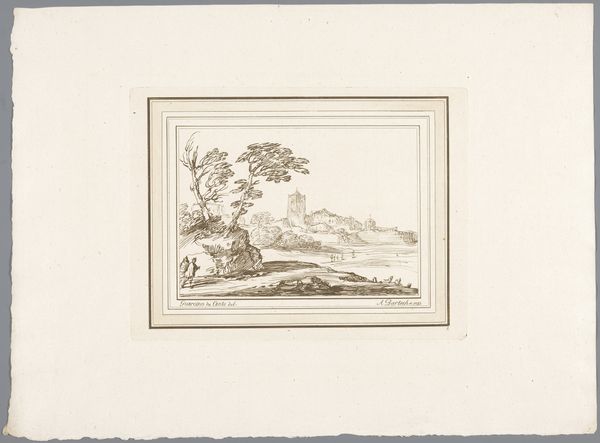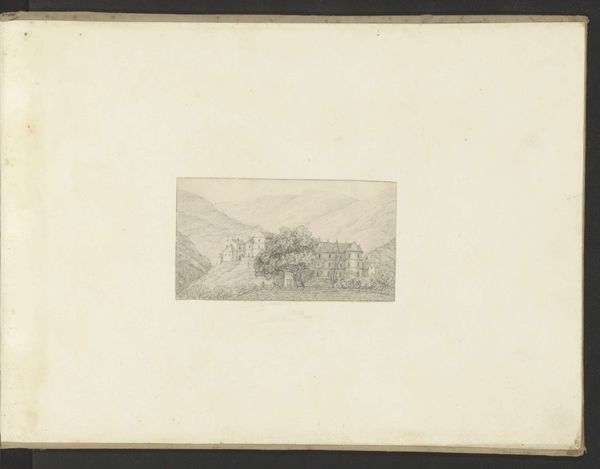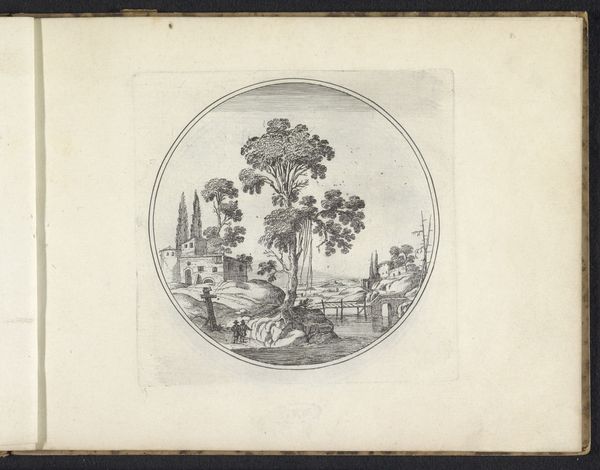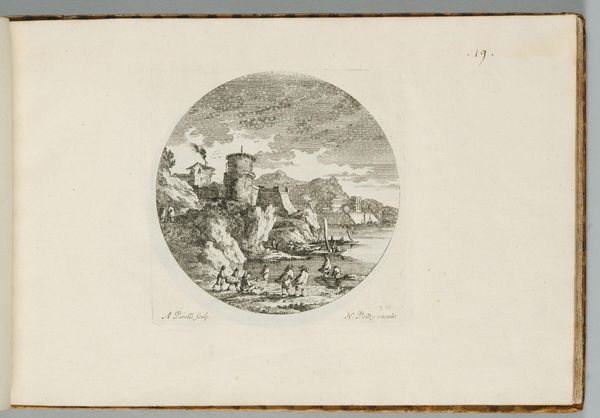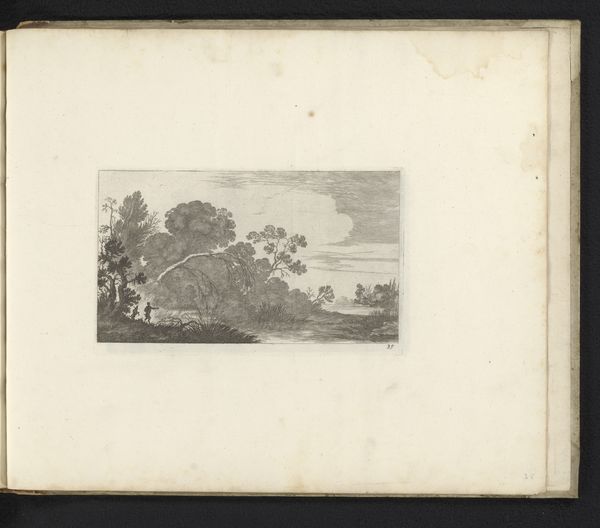
drawing, print, etching, engraving
#
drawing
#
baroque
# print
#
etching
#
landscape
#
coloured pencil
#
engraving
Dimensions: height 106 mm, width 110 mm
Copyright: Rijks Museum: Open Domain
This landscape with a rock formation on a river was etched by Charles de Hooch in the 17th century. Though we don't know the precise date, understanding the conventions of Dutch landscape art at the time is crucial. The circular format, or 'tondo,' often signified a self-contained, ideal world. The scene echoes the growing Dutch interest in naturalism, yet it's not a mirror of reality. It’s an arrangement, a carefully chosen selection of natural elements. The rocky outcrop, the lone tree, the river – each speaks to the Dutch mastery over their environment, a control gained through land reclamation and sophisticated water management. Prints like this played a role in shaping national identity. They circulated widely, reinforcing a shared vision of the Dutch landscape. Art historians consult period maps, travelogues, and estate records to understand how artists like de Hooch contributed to this cultural project, helping to construct a national narrative through imagery.
Comments
No comments
Be the first to comment and join the conversation on the ultimate creative platform.
